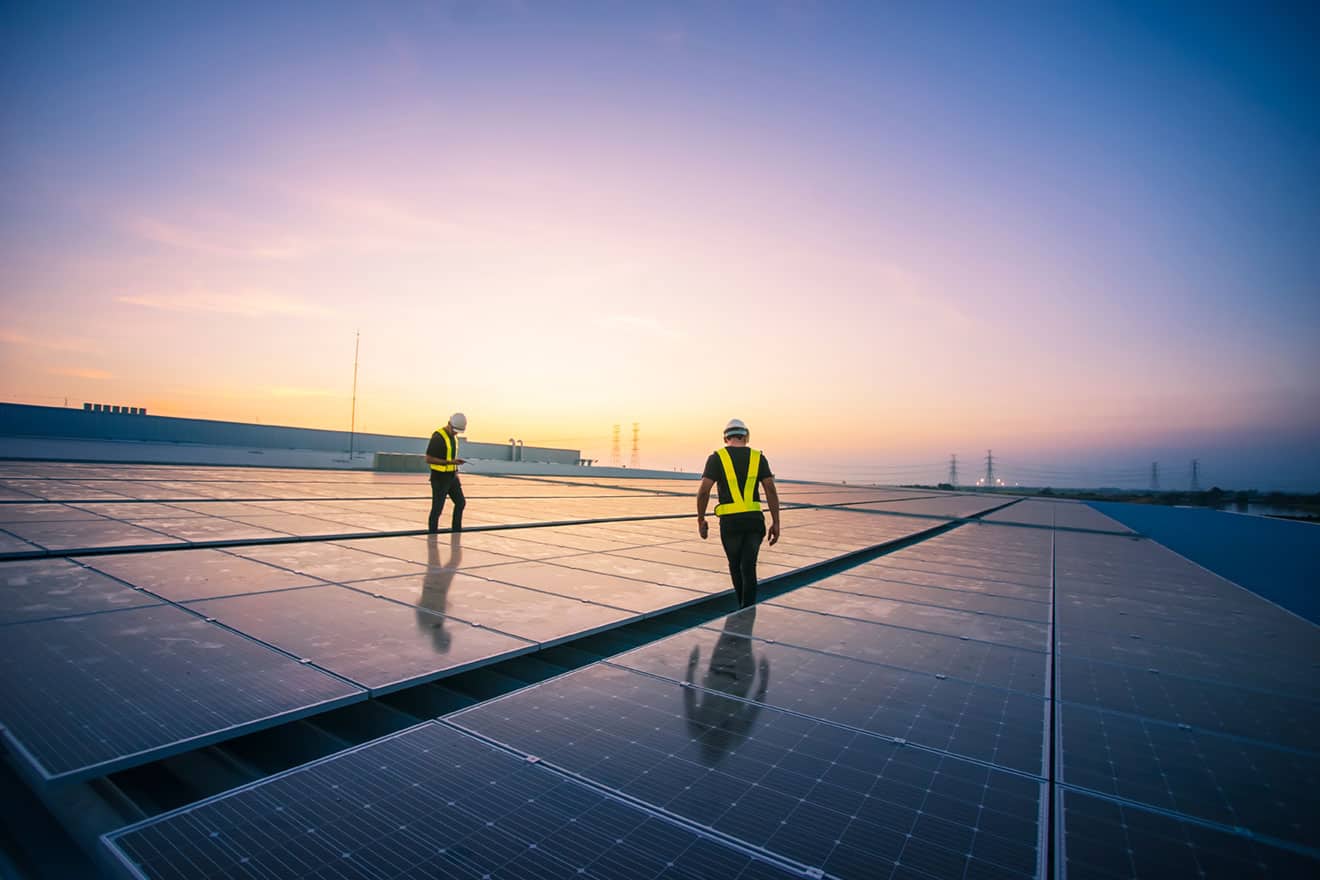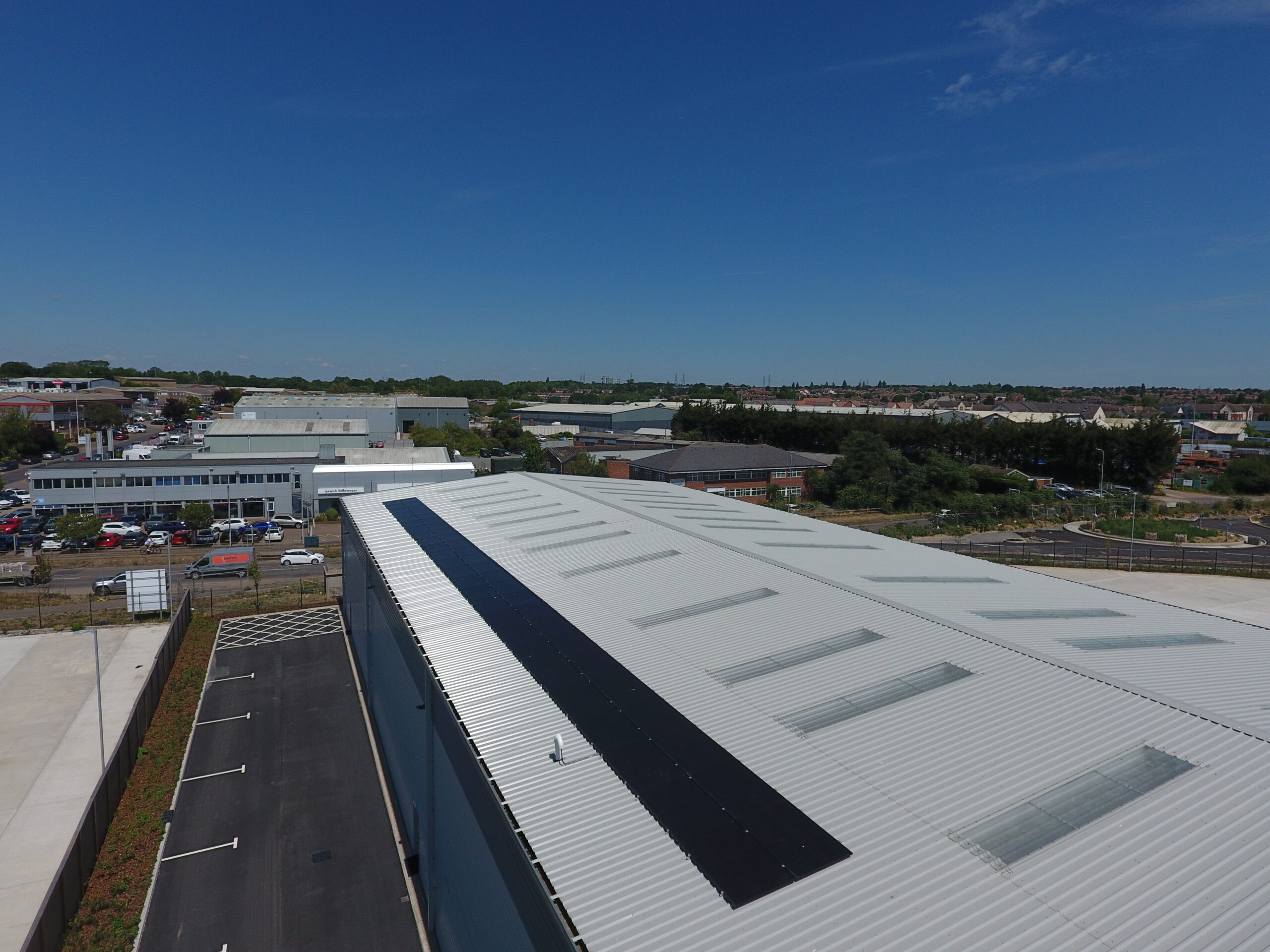As the planet continues to reel from the ever-evolving threats posed by climate change, some leaders within both private and public sectors have started taking steps toward green energy. In the commercial and industrial sectors especially, solar energy has become increasingly popular. Solar energy is a well-understood and reliable source of renewable energy, and there are many good reasons that your commercial warehouse should switch to solar energy. Read on to find out more on the advantages of solar energy.
Advantages of Solar Energy for Commercial Warehouses
Not sure about the switch to solar energy? There are many reasons that solar is ideal for commercial warehouses. If you own such a warehouse, you should know about the following key benefits of solar energy for your commercial holdings.
Solar Income
One major incentive for businesses to switch to solar energy (or at least install supplemental solar panels) is solar income. In the UK, solar income is obtained through the Smart Export Guarantee (SEG) scheme, which was introduced in 2019 to replace the Feed-in Tariff (FiT) scheme for new participants.
Under the SEG scheme, energy suppliers are required to offer at least one tariff to customers with small-scale renewable energy systems, including solar panels. The SEG scheme pays owners of solar panels for any excess energy they generate and export back to the grid, providing a financial incentive to invest in solar energy systems.
Essentially, solar income is passive income that can boost your warehouse’s revenue without you having to lift a finger. Warehouses are particularly good for small-scale solar farming and making money back through the SEG scheme because of the amount of rooftop space that can easily be dedicated to solar panels. Not only is solar energy good for the environment, it’s also good for your bottom line.

Lower Carbon Footprint
By adopting solar energy, you can reduce your business’s dependence on fossil fuels and minimise your carbon footprint. Your warehouse’s carbon footprint is the total amount of greenhouse gas emissions, primarily carbon dioxide (CO2) created over the lifespan of your warehouse. These emissions contribute to climate change by trapping heat in Earth’s atmosphere, and solar energy can help lower your carbon footprint by reducing the amount of greenhouse gases emitted by the generation of electricity. Traditional methods of electricity generation, such as coal and other fossil fuels, emit significant amounts of CO2 during combustion. Solar energy, by contrast, generates electricity without any emissions whatsoever, making it a clean alternative.
Better Corporate Social Responsibility (CSR)
Today’s consumers expect the companies they choose to follow corporate social responsibility (CSR) practices. Most consumers– 70% – want to know how the brands they choose are addressing social and environmental issues, and 46% of consumers pay close attention to these efforts when making purchasing decisions.
Younger generations in particular are closely keyed into CSR practices; 44% of millennials support environmental initiatives all the time, even if that translates to raised prices. The point here is that as this generation rises to corporate power, they are going to be making decisions for companies about where to warehouse inventory and shipments; more than ever, your CSR initiatives are going to be important for your warehouses.
Cost-Saving Reduced Dependence
Reducing your dependence on the existing energy grid is a major cost-saving move. Rising energy costs and fluctuations in energy prices mean that less grid reliance will reduce your energy bills. Solar systems also require little maintenance once they are installed since they have no moving parts and require little upkeep beyond occasional cleaning. This means that you can minimise your maintenance costs and lower unexpected repair bills.
Energy Security
Relying on an ageing power grid and a fuel industry prone to massive price swings can be risky for your business. If your warehouse is holding sensitive objects or is dependent on cooling or refrigeration, solar panels and solar storage mean that you don’t have to worry about blackouts or brownouts. By removing yourself from grid dependence and storing your own energy, you create energy security for your business.
Disadvantages of Solar Energy
While there are many clear advantages of solar energy for commercial warehouses, it cannot be said that this form of energy is without disadvantages. Switching from standard grid energy to solar can be challenging if you have not selected the right partner, and it is important to understand the potential problems you may have with solar energy.

Initial High Up-Front Costs
Commercial solar panels can be quite expensive to install, although recently we have seen prices fall. This combined with the increase in the cost of energy has seen impressive ROI (Return on Investments). Depending on the size of your solar system and whether you go for a string or optimised system, prices can vary. The price is largely determined by your roof size (which determines how many panels you can have) and the amount of energy you want to produce.
Spatial Considerations
Solar panels take up quite a lot of space. If you have rooftop space, it’s better to have your panels up there than on the ground so that they’re not in anybody’s way; however, if you have building support systems on your roof, there may not be as much room for your solar panels.
Solar panels are also somewhat heavy, so you need to know how much you can safely put on your roof. For warehouses, it’s likely that you’ll have enough space for your solar system, given the size of the average warehouse and the minimal support systems such a space needs.
Storage
Solar panels generate more energy than your warehouse can use at once. While you can sell this energy back to the grid, you will also want to store it in solar batteries for use when the sun isn’t out. Solar storage can be expensive and bulky, so this is something else you should consider when switching to solar.
Dependent Upon Weather
Grey days aren’t great for generating solar energy. While today’s modern solar panels have improved upon initial designs for extracting energy when the weather isn’t great, solar panels will produce less energy on cloudy days. However, if you have a large solar system, the energy you produce and store on sunny days will offset this capacity concern.
Why Solar power is a positive investment for your business
Overall, the advantages of solar energy is an environmentally friendly and budget friendly measure for warehouse owners to take. It can also be a smart and exciting move. It’s going to require a lot of thought and planning. The process isn’t straight forward but the benefits you’ll gain in the longer term and positive impact you’ll have on the environment will have a lot more meaning.
To learn more about how solar energy can have a positive effect on your business get in touch with the team at EcoSolar to discuss your needs and provide a quote.

